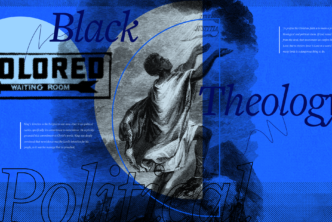Marriage is beautiful. It is complex and wonderful. We talk, preach, and teach about marriage frequently. And rightly so! Marriage has a valued place in God’s kingdom.
But does the value of marriage negate the value of singleness? After all, singles, by definition, miss out on the value of marriage. Do we unintentionally devalue singleness in our desire to value marriage?
When we don’t talk, preach, or teach about singleness, that absence can unintentionally imply that singleness is not as beautiful, complex, or wonderful as we believe marriage to be, or that it is valued less than marriage. And if singleness lacks such value in God’s kingdom, then presumably it exists only for the purpose of ceasing to exist.
However, let me encourage you to think about singleness differently—to view both marriage and singleness as valued in God’s kingdom.
De facto and unvalued
We are all born into a de facto state of singleness. It is our default state, but not a valued state. It often just “is.”
Usually, when a person hits puberty, they begin to think about their desire for a romantic relationship and about pairing up with a partner in marriage. Thinking about marriage is natural (and good!), but we don’t typically think about singleness in any comparable way. We often don’t teach our people or our children to think about singleness. And no, thinking about how much you hate it or can’t wait to leave it behind, or how someone else should leave it behind, is not thinking about singleness—that is still, ultimately, thinking about marriage.
We often don’t teach our people or our children to think about singleness.
But this de facto state can end up lasting longer than anyone may have planned—years, decades, even until death. Meanwhile single people often feel unloved and unvalued—not just by the absence of a partner, but by their Christian community which does not value their singleness.
Consider also that even in marriage, singleness haunts the spouses. Marriage is only “until death,” at which point singleness returns to the one left behind. A grieving widow or widower suddenly finds they have returned to that de facto, unvalued state of singleness. Other marriages end in divorce, sending both spouses back into the unvalued state of singleness.
Singleness is often unvalued not because marriage is valued, but because of the way marriage is valued. When we teach about marriage as obedience and do not equally teach about singleness as obedience, we can leave the impression that singleness (as the opposite of marriage) is actually disobedience. When we teach that God uses marriage to grow and mature Christians, but do not teach that God also uses singleness to grow and mature Christians, then marriage becomes maturity and singleness becomes immaturity. In extreme cases, marriage becomes holy and singleness becomes sin.
You can’t have one without the other
A healthy theology of marriage requires an equally healthy theology of singleness. If you don’t have a valued place for singleness in your theology, then your theology of marriage is not as healthy as you might think.
A healthy theology of marriage requires an equally healthy theology of singleness.
I do not base this bold claim on Paul’s words in 1 Corinthians 7, though they are also very important for this issue. I base my claim upon Jesus’s words to his disciples.
The elevation of marriage
In Matthew 19:1–12, some Pharisees questioned Jesus. They tried to engage him in one of their theological debates by asking under what circumstances a man could divorce his wife. Two primary theological camps existed on when a man had the right to divorce his wife: one camp only allowed divorce for unfaithfulness, the other allowed divorce for any reason at all.1
As he tended to do, Jesus did not directly answer the question. Rather, he addressed their underlying problem. They were asking when divorce is acceptable. He redirected them to ask why divorce was even an option. Their question asked what threshold had to be met for divorce, but Jesus wanted them to ask the deeper question of why there was a threshold at all.
Jesus first pointed to the creation of marriage (vv. 4–5), and the said the now-iconic words, “Therefore what God has joined together, let no one separate” (v. 6 NIV). Upon hearing this declaration against divorce, the Pharisees asked why then would Moses command divorce. Here Jesus points them to sin: “Moses permitted [i.e., not commanded] you to divorce your wives because your hearts were hard. But it was not this way from the beginning” (v. 8 NIV). And even though Jesus then mentions that divorce is permitted for adultery (v. 9), he provides it only as an example of hardened hearts—of sin.
The theological debate of the day asked when a man had the right to seek a divorce. Jesus challenged them to focus on the value of marriage—not a man’s rights. He challenged them to see sin (not the violation of rights) as what can end a marriage.
The pharisees presumably left after Jesus’s response. But the disciples, who were there, had been listening. They had just heard their rabbi elevate the theology of marriage beyond the theological debates on the right to divorce. They heard him say that marriage is very serious and valuable—that only sin can destroy it.
The elevation of singleness
In learning to value marriage highly, the disciples’ immediate response was to develop a corresponding theology of singleness (v. 10). They had realized that valuing marriage highly meant that it would be better to remain single than to enter into marriage lightly.
As Jesus saw his disciples take their first fledgling step in developing a theology of singleness, he responded with a strongly implied “Yes!” He affirmed their response was true, more true than they even realized, although not everyone would be able to accept it (v. 11).2 Jesus continued by challenging them to value three other types of singleness (v. 12):
- Some are single because something present from birth has made them so.
- Some don’t marry because of the way others’ choices have affected them.
- And others choose not to marry because their singleness in some way benefits God’s kingdom.3
A high theology of marriage compels the formation of a theology of singleness. But singleness is not just an alternative to marriage. Singleness can exist for a myriad of unchosen (or undesired) reasons, and it can be a chosen way of life in God’s kingdom. Jesus noted all of these to his disciples as alternatives to marriage, thus affirming their reality and value.

Explore practical topics like singleness using Logos’s Counseling Guide.
Nothing new under the sun
We can be easily tempted to read God’s creation of marriage (Gen 2:20–25) and the commission for Adam and Eve to procreate (1:27–28) as a command for all subsequent humans. But Jesus’s words in Matthew 19 (and many other passages) push us to reconsider applying God’s commission to Adam and Eve as a command to all people. Scripture does not condemn singleness as disobedience.
Jesus’s words in Matthew 19 did not set a new precedent for singleness. But they did clarify and hone what we see glimpses of throughout the Old Testament. For example:
- Isaac was single for forty years because there were no faithful women around him; and his lengthy singleness was not condemned (Gen 24:2–4; 25:20).
- Joseph remained single until thirty, again because of circumstances. Egyptian slaves—especially when in prison—weren’t exactly eligible bachelors (Gen 41:45–46).
- Naomi faced singleness as a widow. The entire book of Ruth highlights the value of singleness as it describes God’s loving care and provision for her through her likewise-single-again daughter-in-law, Ruth.
- And Jeremiah was single for the sake of the kingdom (Jer 16:1–4).
In each of these, and many more, Scripture upholds the value of singleness. Singleness is not condemned in Scripture.4 Their stories, and many others like theirs, provide encouraging and positive examples for how singleness is valuable and worthy of honor in God’s kingdom.
Devaluing singleness devalues marriage
Devaluing singleness affects single people. It teaches singles to devalue themselves and teaches the church to devalue them as well.
But it also affects our marriages. Upon hearing Jesus’s elevation of marriage, the disciples realized that, in order to rightly value marriage, they must also have a place for singleness in their theology. The disciples realized something that some theologies of marriage today are missing: If marriage is seen as the most faithful option, then there will be people who marry who probably shouldn’t (at least, not at that point or to that person, etc.).
Over the years, many have shared with me accounts of difficult marriages, especially marriages that ended in divorce. Some of these stories, although not all, share a common thread: a belief that they had to marry, because marriage is obedience. They did not think singleness, whether temporary or extended, was an option for faithful Christians.
Some of these marriages ended in divorce. Others survived, but with struggles that could have been avoided had they been encouraged to wait, address the issues that would unnecessarily impact their marriage, or realize their choice to marry was problematic—and, yes, see singleness as actually valuable in God’s kingdom!
God can redeem such marriages. But just imagine what God could have done in the lives of the people if they had known they could say “No” to marriage—or at least that marriage, or that timing. Imagine what marriages in the church would look like if we were to talk, preach, and teach about the various types of singleness in the same way as marriage. Those seeking marriage will have the support to say “No” to marriage when they are not spiritually or emotionally ready for marriage or when they are questioning the health of the relationship.
The path forward
A short two thousand word article is unlikely to provide anyone a robust theology of singleness. But I want to ask you to follow the disciples and at least take a tentative step: Begin to think about singleness. Look for it within the pages of Scripture. And when you think thoughts about marriage, intentionally ask yourself what those thoughts also say about singleness. Do they contradict Jesus’s words in Matthew 19 or other passages of Scripture?
Jesus said that not everyone could accept what the disciples realized about singleness or what he then added to their fledgling theology. Not everyone can accept that a high theology of marriage requires a high theology of singleness. If you have not accepted Jesus’s affirmation of the value of singleness, will you accept it?
Increase your appreciation for the place of singleness in God’s kingdom with these recommended resources from JoAnna Hoyt
- They Were Single Too (David Hoffeditz)
Redeeming Singleness: How the Storyline of Scripture Affirms the Single Life
Regular price: $12.99
Breaking the Marriage Idol: Reconstructing Our Cultural and Spiritual Norms
Regular price: $13.74
The Significance of Singleness: A Theological Vision for the Future of the Church
Regular price: $18.99
Singles at the Crossroads: A Fresh Perspective on Christian Singleness
Regular price: $14.99
The Meaning of Singleness: Retrieving an Eschatological Vision for the Contemporary Church
Regular price: $27.99
Related articles
- “Is This Sinful?”: How to Know Whether Something Is a Sin
- The Kingdom of God: The Great Unfolding Drama of Salvation
- 11 Dietrich Bonhoeffer Quotes on Discipleship and Christian Community
- R. T. France, The Gospel of Matthew, New International Commentary on the New Testament (Grand Rapids: Eerdmans, 2007), 206–08.
- Interpreters heavily debate Jesus’s statement that “not everyone can accept this word, but only those to whom it has been given” (v. 11 NIV). Some read “this word” as a reference back to his statement about marriage (vv. 8–9) or the disciples’ response (v. 10). Nolland argues well for a “double sense” because it “referred back to the disciples’ comment taken, not as they intended it, but in reflection to what is coming in v. 12: they spoke more truly than they yet knew.” John Nolland, The Gospel of Matthew: A Commentary on the Greek Text, New International Greek Testament Commentary (Grand Rapids: Eerdmans, 2005), 776–77.
- This reading takes the three categories of “eunuchs” as non-literal. A literal “eunuch” refers to a male whose reproductive system is not intact, either by birth or later castration. Whether the eunuchs mentioned in this passage are literal or not is debated. Many, though, conclude that at least the third category does not refer to actual castration for the kingdom. For a detailed defense of such a reading, see Nolland, Gospel of Matthew, 777–82.
- When Paul tells widows to marry in 1 Timothy 5:14, he is not condemning their singleness; he is addressing a more complex issue. Widows fulfilled a specific role in the early church as they dedicated themselves to service and, in turn, the church provided for them (see 1 Tim 5:3–16). Many widows in Ephesus, though, were abusing the system. They were being supported by the church, but not dedicating themselves to the church, and instead seeking their own desires. Others, Paul wisely noted, were not ready to commit to remaining single for service to the church. So instead, he encouraged them to marry, as singleness was not the only way to serve the church.





